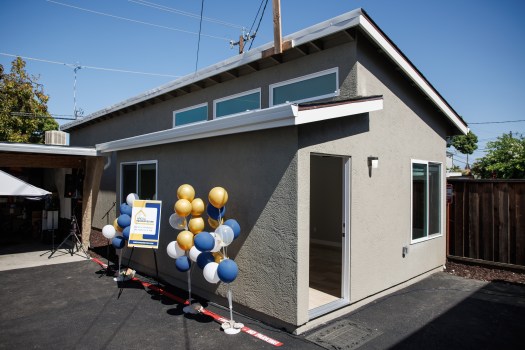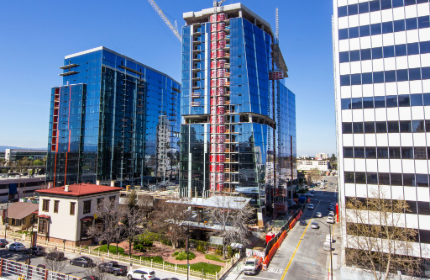Sunnyvale welcomes new affordable ADUs – The Mercury News
SUNNYVALE — For months, Hulita Inukihaangana and her family struggled to find affordable housing in the South Bay, often seeking refuge in local homeless shelters and temporary stays at hotels.
Then finally, she was handed a lifeline.
The family moved into a Sunnyvale apartment in 2020 owned by Aresa Properties — whose mission is to provide housing to low-income families on their property sites and is creating affordable ADUs, also known as in-law units or backyard homes, in the city and elsewhere.
“It’s important to be able to give people a place to call home,” Inukihaangana said Friday, surrounded by Aresa Properties owners, their supporters and local leaders to celebrate the opening of their first ADU at Helen Avenue, located north of El Camino Real.
Three other ADUs are in the works at Aresa’s existing properties around the city and another will come to West San Jose in 2025, according to Teresa Augstin, principal partner at the company. They partner with local housing agencies — including Santa Clara County Housing Authority, Life Moves and Sunnyvale Community Services — to find families in need to fill their units. The company especially has a soft spot for single mothers with young kids.
“We believe stable housing can help minimize trauma for children and youth,” Augstin said. “They can focus on their education and ultimately change the trajectory of their future in a positive way.”
The market price for a Sunnyvale duplex like Helen Avenue’s, which is a one-bedroom that can fit two to three people, is around $2,600. Aresa works with the agencies and individual families to negotiate a price that works for them, Augstin said.
The units are becoming popular building options for Californians. In 2023, one out of every five homes built in the state was an ADU, according to recently released state data. Only three years ago, they represented one in every 10 new units.
Aresa Properties CEO Arman Bashi said he encourages other landlord to build ADUs for local low-income families to help the region’s growing housing crisis.
“We want people to see that they can be done, and that it can be successful for both parties,” Bashi said Friday.
The California state Legislature previously passed several bills lowering barriers to building ADUs to encourage more housing projects. AB 68, which passed in 2019, sped up the approval process from 120 days to 60 and prohibited local officials from imposing requirements around lot size and parking. AB 881 passed the next year and prevented cities from requiring owners to live on the property, opening up the possibility for landlords to build rental ADUs.
The Santa Clara County Board of Supervisors recently allowed residents two sets of pre-approved plans for building ADUs on their residential property by the end of the year. The streamlined process is intended to open up more affordable housing in the region, according to District 3 County Supervisor Otto Lee.
Nearby, the City of Milpitas has also launched a program to speed up the ADU permitting process. In Walnut Creek, the City Council approved amendments to the city’s ADU ordinance allowing religious leaders to help residents struggling to secure affordable housing.
“There’s no one silver bullet to solve the problem,” Lee said Friday. “But having ADUs can help us.”








